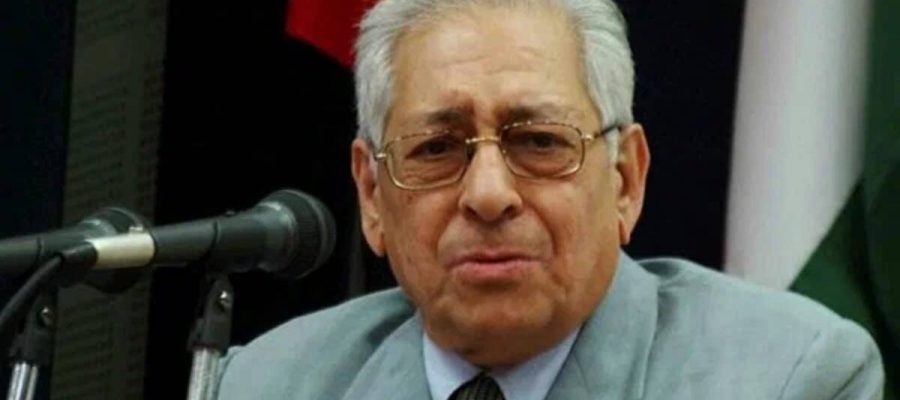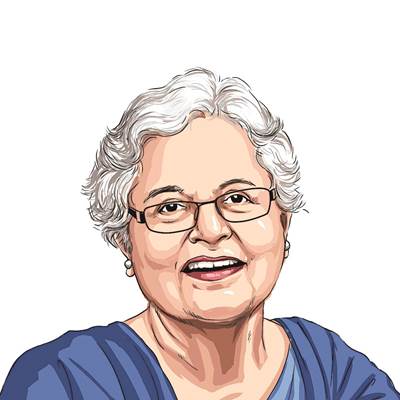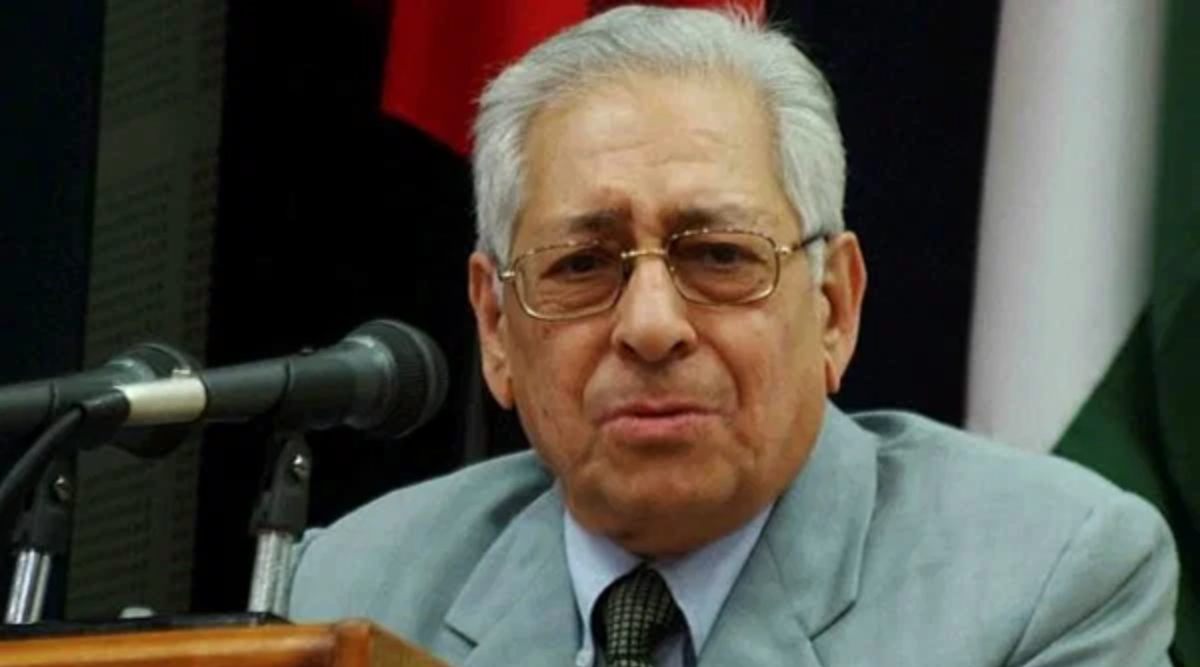Sorabjee was a warm, genteel, intellectual practitioner of the law of a different era where facts and the interpretation of the statutes were the overriding consideration.
Get email alerts for your favourite author. Sign up here
Covid robbed former Attorney General Soli Sorabjee the opportunity to observe his 90th birthday in March last year. It was an event that he was looking forward to with much anticipation, and should have celebrated a milestone in a truly remarkable life in law, human rights, press freedom and humanity. But with the number of Covid cases rising sharply, the celebratory dinner had to be hastily cancelled two days before the event. This year, there were festivities but on a subdued note, and the moment was never properly celebrated as Sorabjee deserved.
Sorabjee was a warm, genteel, intellectual practitioner of the law of a different era where facts and the interpretation of the statutes were the overriding consideration. Where arguments were laced with wit, polish and erudition. For Sorabjee, the law was a calling and money was never the prime motive, as it is for many leading lawyers today. A Parsi who trained at the Bombay Law College, he was a contemporary of others from the Bombay institution such as Fali Nariman, Ashok Desai, and Murli Bhandare. The luminaries from the Bombay Bar then dominated the Supreme Court.
Sorabjee who followed in the footsteps of his mentor Nani Palkhivala, made a significant contribution to the interpretation of constitutional law in independent India. He was a champion of free speech and citizens’ civil liberties, and assisted Palkhivala in the landmark Golaknath and Keshavananda Bharati cases. The judgments in these two cases protected the rights of the individual, whether prince or pauper, against the state.
The genial Sorabjee often offered his services for free, working pro bono. During the Emergency, he provided legal assistance to many political prisoners arrested under the draconian MISA. It was a challenging time, and he lived under the shadow of possible imprisonment. He once recalled to me jokingly that his young son Hormazd was terrified that he would bring disgrace on the family by being sent to jail. Palkhivala and he were left stunned by the extraordinary suspension of fundamental rights including the right to life by the Supreme Court during the Emergency in a 4-1 order in the habeas corpus matter. Sorabjee firmly believed judges after retirement should keep away from political positions in the Rajya Sabha and elsewhere.
Sorabjee lent his services for free to Sikhs in Delhi after the 1984 riots. Another important case he represented was the milestone St Xavier’s College, Ahmedabad petition against Gujarat state, which upheld the rights of minority bodies to set up and run their own educational institutions.
The Maneka Gandhi passport case of 1979 where the courts held that a person’s fundamental right entails that he or she cannot be denied a passport without ascribing a reason was argued when Sorabjee was Additional Solicitor General.
In 1989, he fought the dismissal of then Chief Minister S R Bommai by Karnataka Governor Buta Singh under orders from a hostile Central Government. This judgment has come to be the litmus test for assessing the constitutionality of Article 356. Thanks to this single order, the misuse of this article to dismiss inconvenient state governments has drastically reduced.
Sorabjee served as Attorney General between 1998 and 2004. He was Special Representative to the United Nations Human Rights Commission, and has served as a member of the Permanent Court of Arbitration at the Hague. He was a life trustee of the India International Centre.
Sorabjee was born in an affluent business family, but he was never drawn to a commercial career. His interests were more in English literature and poetry, and he could reel off the verses of the great English poets, often spouting a quote to buttress his argument. He had a hilarious sense of humour and was a great mimic.
Another interesting aspect of his multi-faceted personality was his deep interest in jazz, a love for which, he recalled, he picked up quite by accident. He began life as a classical music enthusiast, but by mistake the salesman at Bombay’s iconic Rhythm House dispatched to him a record of Benny Goodman instead of the Brahms Hungarian Rhapsodies that he had ordered. He found the unfamiliar notes intriguing, and slowly developed an abiding passion for jazz. He was president of the Delhi Jazz Association for many years. And at his birthday dinners, you met a very varied set of people from many different walks of life.
Sorabjee leaves behind his wife Zena, a dedicated Bahai social worker, his daughter Zia Mody, head of the leading legal firm AZB, his son Hormazd, who edits a popular auto magazine, and another son Jehangir, who is a leading doctor. Sorabjee was a recipient of the Padma Vibhushan.
As a senior counsel, Sorabjee generously mentored and promoted many of his juniors who rose in later life to key positions. Harish Salve started out as a junior in his chamber.
Source: Read Full Article



